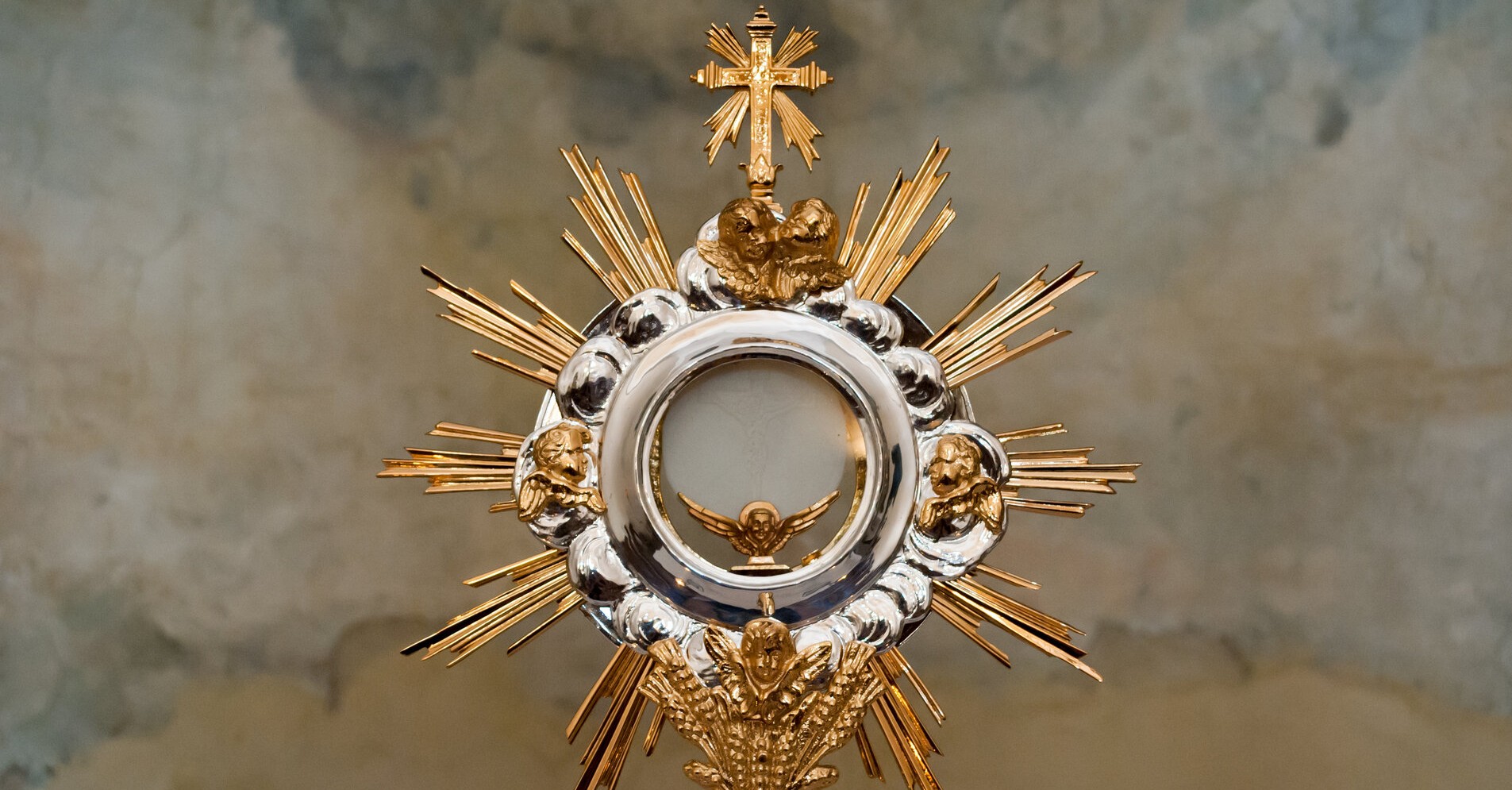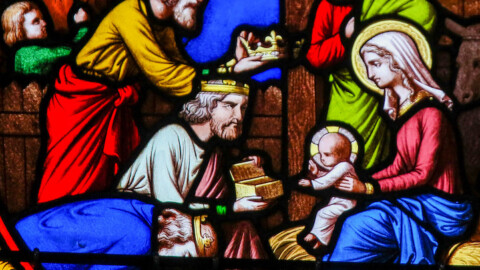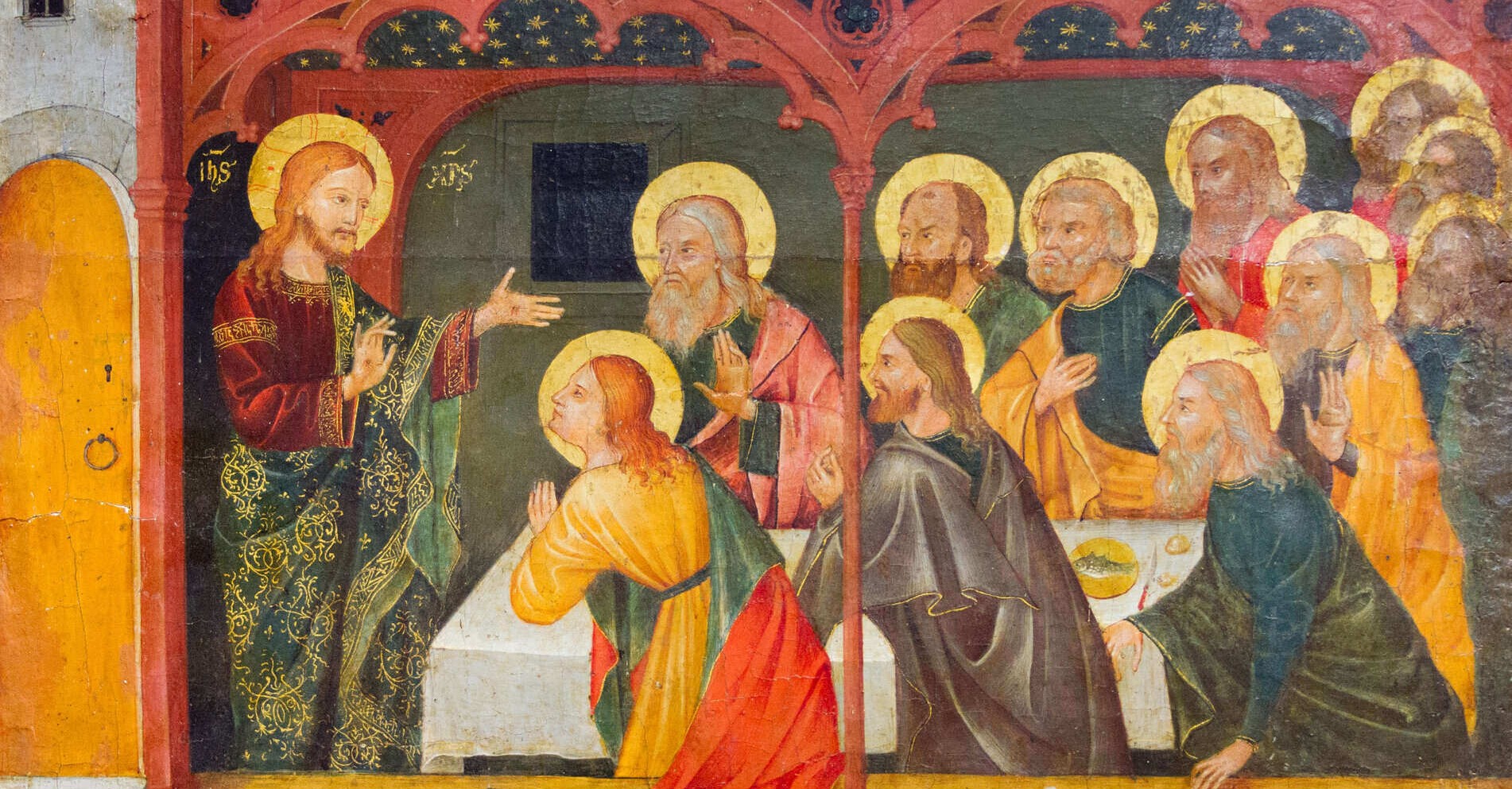Proper 23, 10 October 2021
From today’s Gospel, people sometimes think that to be rich is wrong and we need to take a vow of poverty. This is not correct: God wants to provide our needs and the needs of our loved ones. However, sometimes we trust in the false security of riches. All our riches in this life we cannot take with us. We can be thankful for money, but it’s not our security. People in La Palma, Canary Islands sacrificed much for their houses, but they were gone quickly. What we have shouldn’t define us. Money gives power to buy, but we cannot buy life, love, hope or peace.
Humanity is searching for God
Humanity is perpetually searching for something: this means either we’ve lost it or we don’t have it. Jesus’ parables about a pearl and a lost coin give us the understanding that we’re in a process of searching. We search for happiness, love, peace, joy and contentment; but can we find these things by ourselves? Can we find what we’re searching for in this world? The rich man’s question is one of the ultimate questions of everyone’s heart, even when it’s not acknowledged. What is truly the meaning of life? What’s the ultimate aim? Why was I born? How can I attain the meaning and purpose of life?

There’s an alarming rate of people becoming depressed and committing suicide. As much as the world has become very modern, many young people aren’t finding their purpose and meaning in life. This is partly to do with modern technology; we need to teach our children to use it in the right way. Recently I saw the testimony of a young girl who became disillusioned because she was constantly comparing herself with people she saw on Instagram. The truth is, you cannot compare yourself with others – you can only compare yourself with the person you were yesterday.
Jesus tells His disciples that life is more than work, food, clothing, a house or car, or anything this world can offer: “Seek first God’s Kingdom and His righteousness”. We need to understand that life is more than we think. In the Old Testament today we heard, “Seek the Lord, and live”:[1] we don’t live without God in our lives. Saint Augustine said, “Because God made us for Himself, our hearts are restless until they rest in Him.” Ultimately what man is looking for is God.
The Law must be transcended by mercy
A wealthy Jewish man asked Jesus, “What must I do to inherit eternal life?” What is eternal life, and when does it start? Eternal life is a state of being in a permanent living relationship with God through Jesus Christ, and is consummated and completed at the resurrection of believers. We don’t receive it when we get to heaven – we receive and begin to live it here and now. It would be natural for a Jew to assume that observing the law would bring eternal life; but this rich young man’s question suggests he may have had some doubts in his heart and wasn’t 100% sure that obeying the Law was the way to receive eternal life. Receiving and obtaining eternal life is more than the fulfilment of the Law that he’d been taught. Jesus asked whether he fulfilled the Commandments; he responded, “I’ve done them from my youth”. Jesus, discerning his life, said, “There’s still one thing you lack, if you really want eternal life: sell all your possessions and give them to the poor.” The man was taken aback and said, “Can I really do it?” His possessions had taken hold of him, and it was very difficult for him.
As a Jew, why didn’t he know he was to take care of the poor, the widows, orphans and strangers? The Old Testament is filled with instructions to take care of those less fortunate than ourselves. Canon Jim House shared the testimony of how his daughter was diagnosed with cancer and her arm was to be amputated; he couldn’t afford it, but the doctor offered his services free of charge. He was struggling financially, but he saw a beggar, and the Lord led him to give him everything in his pocket. When he returned to the hospital, the cancer had turned to powder and they scraped it off instead of amputating her arm; today she’s alive and has two children. Can God do miracles? Can He take care of us so we can take care of others? Are we too poor to help those less fortunate than ourselves? If you are a Christian, you’re not poor – maybe by the world’s standards, but not in God’s eyes; don’t think of yourself as poor. Don’t compare yourself with others – remember you have Christ.
The Law is necessary for the ordering of society, but Jesus’ profound message to the rich young ruler is that Christianity transcends the Law. If the Law cannot bring eternal life, what will? The Law leads to legalism; someone said that if man cannot be guided or controlled by ten commandments or laws, how much less one thousand. Our Lord’s message is that the Law must be transcended by mercy and compassion. The rich young man had followed all the laws, but he’d forgotten to live a life of mercy and compassion. Grace came to us at the advent of Jesus Christ.
The Source of all goodness
He said, “Good Teacher…” Jesus said, “Don’t call Me good – no one is good but God alone.” Jesus isn’t denying that He is good – He’s inviting us to understand a more profound sense of goodness. Human goodness is transcended by divine goodness, and God is the Source of all goodness. To do something good is good, but that’s human goodness. The young man looked at Jesus as a good person because of the things He was doing, such as healing the sick and teaching simple people. He was saying, “Don’t call Me good because I do these things”: Jesus was leading the young man to understand that God is the Source of goodness. This rich young man saw the unusual human qualities, but missed the infinite goodness in Jesus.
God loves man, not because man is good, but because God is love – unlike the song that says “Santa Claus” will give you a gift if you’re good but not if you’re bad; this idea has permeated humanity, but divine goodness goes beyond that. God loves us not because we’re good but because God is good.
If man perpetually searches for love, hope, meaning, purpose and ultimately life, Jesus doesn’t have these things – He IS these things. He is the Way, the Truth and the Life. If I say, “I have money, and I’m going to give it to you”, you can receive the money without receiving me; but if Jesus is life, you cannot have life without Jesus. Jesus doesn’t have these things – He’s the Source of these things, and He IS life, joy and hope. We cannot attain these things without having a relationship with Christ. Do we want only what Jesus can give, and not Jesus? It should be the other way around. You might be poor in this life, but if you have Jesus, you have everything. What man is looking for, more than money and riches, is eternal life. The most profound question every human asks, is “What is the ultimate purpose of life?” We can only find it in Jesus – nowhere else. They say, “Coke adds life”; I would say, Jesus is the Giver of life.
[1] Amos 5:6








